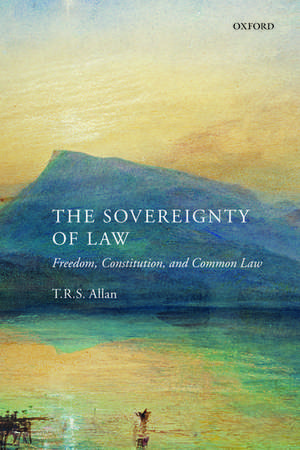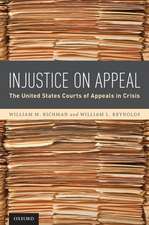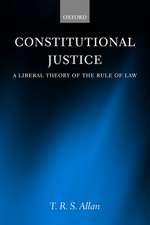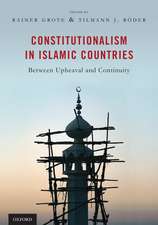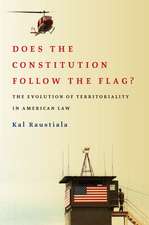The Sovereignty of Law: Freedom, Constitution, and Common Law
Autor T. R. S. Allanen Limba Engleză Paperback – 18 iun 2015
| Toate formatele și edițiile | Preț | Express |
|---|---|---|
| Paperback (1) | 266.07 lei 31-37 zile | |
| OUP OXFORD – 18 iun 2015 | 266.07 lei 31-37 zile | |
| Hardback (1) | 719.02 lei 31-37 zile | |
| Oxford University Press – 17 iul 2013 | 719.02 lei 31-37 zile |
Preț: 266.07 lei
Nou
Puncte Express: 399
Preț estimativ în valută:
50.93€ • 55.34$ • 42.81£
50.93€ • 55.34$ • 42.81£
Carte tipărită la comandă
Livrare economică 11-17 aprilie
Preluare comenzi: 021 569.72.76
Specificații
ISBN-13: 9780199685073
ISBN-10: 019968507X
Pagini: 370
Dimensiuni: 160 x 234 x 19 mm
Greutate: 0.54 kg
Editura: OUP OXFORD
Colecția OUP Oxford
Locul publicării:Oxford, United Kingdom
ISBN-10: 019968507X
Pagini: 370
Dimensiuni: 160 x 234 x 19 mm
Greutate: 0.54 kg
Editura: OUP OXFORD
Colecția OUP Oxford
Locul publicării:Oxford, United Kingdom
Recenzii
In his latest book, The Sovereignty of Law . . . Allan takes both his critique of orthodoxy and his own rule of law thesis to a new level of cogency and philosophical rigour. Whether or not one agrees with his arguments, it is a tremendous accomplishment. . . . [T]he defining strength of Allan's work . . . is his ability to weave together complex debates in legal and political theory with detailed doctrinal analyses of cases, statutes and contemporary constitutional developments. That strategy . . . is central to his methodological and substantive commitments.
. . . Allan has here captured the zeitgeist-his is a book capable of rationalising two decades of constitutional development in a fashion likely, in turn, to influence public law's evolution in years to come. Notable in this regard is his continued allegiance to common law constitutionalism and concomitant insistence that the Human Rights Act 1998 merely augments the values of the common law. As such, the book's methodological prescription applies even more clearly (and more urgently) if that statutory surface is swept away and the common law left to speak for itself.
. . . Allan has here captured the zeitgeist-his is a book capable of rationalising two decades of constitutional development in a fashion likely, in turn, to influence public law's evolution in years to come. Notable in this regard is his continued allegiance to common law constitutionalism and concomitant insistence that the Human Rights Act 1998 merely augments the values of the common law. As such, the book's methodological prescription applies even more clearly (and more urgently) if that statutory surface is swept away and the common law left to speak for itself.
Notă biografică
Trevor Allan has taught public law and legal philosophy at the University of Cambridge since 1985. He is a leading proponent of the approach to public law known as common law constitutionalism, which identifies the foundations of the British and other Commonwealth constitutions with fundamental principles of legality and freedom, underpinning and informing the common law. He is a persistent and incisive critic of approaches to public law rooted in legal positivism, which locate constitutional foundations in the conventions observed (or opinions held) by senior officials. He is the author of Law, Liberty, and Justice (1993) and Constitutional Justice (2001).
